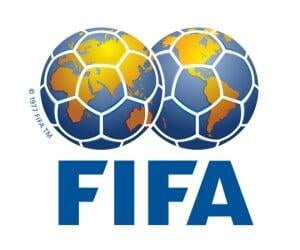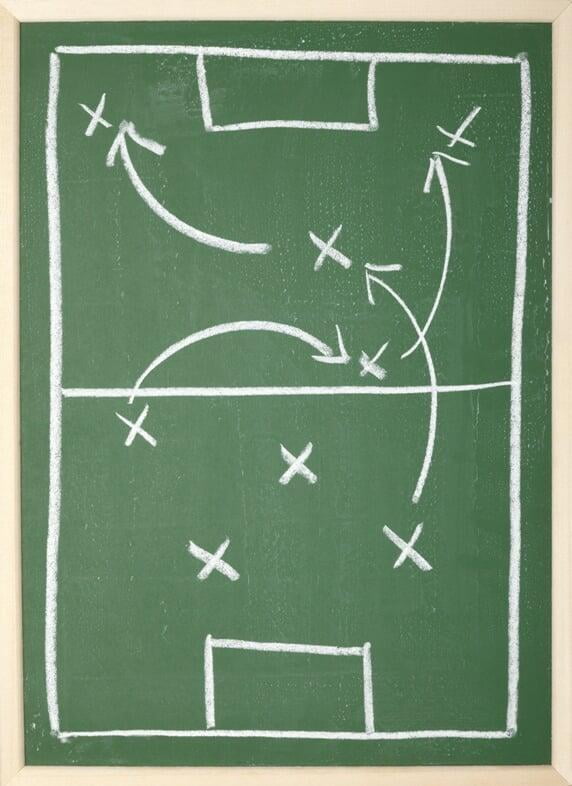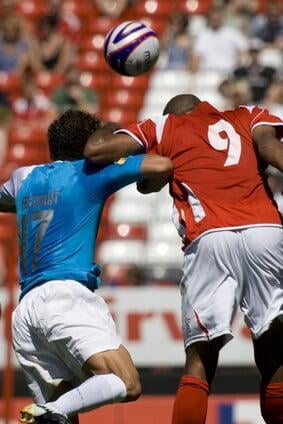By a judgment of January 19, 2017 (A / 16/00141), the Commercial Court of Hainaut, Charleroi division, in the context of the conflict between the player Lassana Diarra and Fifa and the Belgian Football Federation, declared contrary to the principle of free movement of workers article 17.2 of the Regulations for the Status and Transfer of Players of Fifa.
Review of the facts and the procedure
The signing at Lokomotiv Moscow
On August 20, 2013, Lassana Diarra signed to Lokomotiv Moscow for a period of 4 years. Article 8.3 of the contract provides that in the event of early termination by Lokomotiv, for reasons linked to the player's behavior, the latter will be liable for compensation in the amount of € 20.000.000. The same compensation is due in the event of termination without valid reason by the player.
On August 22, 2014, the Club terminated the contract due to various contractual breaches attributable to the player. Taking advantage of the aforementioned article 8.3, the Club is claiming contractual compensation.
Fifa's position
From September 2014, the Club brought the dispute before the Dispute Resolution Chamber (CRL) of Fifa in order to have the player ordered to pay the sum of € 20.000.000 or at least an indemnity "reasonable".
For his part, the player filed a counterclaim claiming the payment of bonuses and salary arrears, as well as compensation equal to the remuneration that should have been paid to him until the end of his contract, on June 30, 2017.
By decision of April 10, 2015, the CRL accepted the Club's request and dismissed Lassana Diarra from its claims. She therefore considers that the Club had good reasons for terminating the contract early.
However, noting that the aforementioned article 8.3 provided for compensation to be paid by the player in the amount of € 20.000.000 while, in the event that compensation was due by the Club, article 8.5 of the contract set a ceiling equal to one quarter of remuneration (i.e. approximately € 1.500.000), the CRL notes that the respective rights of the parties are totally disproportionate. The application of Article 8.3 must therefore be ruled out.
The CRL bases its decision on article 17.1 of the RSTJ fixing the consequences of a breach of contract without just cause and sets the amount of compensation that Lokomotiv could demand at the sum of € 10.500.000.
Fifa also specifies that article 17.2 of the RSTJ (which renders the new club of a player jointly and severally and indivisibly bound with him to the payment of compensation for which the player would be indebted to his former club) would not apply in the future in the event that Lassana Diarra finds a club.
This clarification from the CRL comes at a time when, between August 22, 2014 and April 10, 2015, negotiations between the players and various clubs wishing to recruit him were not successful, the clubs fearing to be jointly and severally liable for the payment of the compensation that could be charged to the player if the proceedings before Fifa prove Lokomotiv right.
The failure of the signing in Charleroi
Indeed, Sporting Charleroi, interested in the signing of Lassana Diarra, sought the opinion of Fifa to know if he would be required to pay any compensation.
Sporting made a commitment offer to Lassana Diarra on February 19, 2015, with two conditions:
- the player must be registered and legally qualified within the club and be selectable by March 30, 2015 at the latest;
- the Belgian Federation and Fifa had to expressly confirm to the club that it would not be required to pay the compensation for which the player could be declared liable at the end of the proceedings instituted against him by Lokomotiv.
Fifa was then satisfied to answer that "only the competent decision-making body whose mission is to rule on disputes between a club and a player relating to the work submitted for its analysis has the power to apply the provisions of the Regulations.".
The Belgian Federation considered for its part that the question "was not relevant"since the Club had to wait for the issuance of a CIT by the Russian Federation.
The summary proceedings before the Brussels Commercial Court
On March 27, 2015, Lassana Diarra summons Fifa and the Belgian Federation. He asks :
- that an injunction be issued, under penalty of penalty, to Fifa and the Belgian Federation to register and qualify him as a professional football player with Sporting Charleroi by authorizing him to play any match, including for the 2014-2015 season;
- that an injunction be made, under penalty of penalty, to Fifa and the Belgian Federation not to apply paragraphs 2 and 4 of article 17 of the RSJT to Sporting.
Following the aforementioned decision of the CRL of April 10, 2015, Lassana Diarra withdraws from this body.
The date of March 30 having passed, he cannot however finish the season in Belgium.
The CAS position
Lassana Diarra continues her fight and files an appeal with the Court of Arbitration for Sport (CAS) against the decision of the CRL.
However, by decision of May 27, 2016, the CAS confirms Fifa's decision.
On the proceedings before the Commercial Court of Hainaut
On December 9, 2015, Lassana Diarra brought proceedings before the Commercial Court of Hainaut, Charleroi division, against Fifa and the Belgian Federation.
It asks the Court to "rule that Articles 17.1, 17.2 and 17.4 of the RSTJ are illegal in that they violate Article 45 TFEU and, in addition, Article 101.1 of the Treaty on the Functioning of the European Union, and consequently condemn FIFA and URBSFA, jointly and severally, to pay him the provisional sum of € 6.000.000".
He considers that article 17.2 of the RSTJ violates the right to free movement of workers enshrined in European law. "According to him, the system of solidary and indivisible co-debition of the new club in the payment of the compensation due by a player to his former club constitutes an obstacle to free movement identical to the system of transfers that the Court of Justice condemned in the 'Bosman stop".
On the contrary, the two sporting bodies raise, in particular, the following means:
- the lack of jurisdiction of the Belgian courts;
- the territorial incompetence of the Commercial Court of Hainaut;
- the inadmissibility of the action:
- Except arbitration.
on the arbitration exception
Fifa considers that Lassana Diarra should have brought his dispute before the CAS in application of the provisions of articles 66, 67 and 68 of its Statutes.
According to the Court, these provisions "pose several interpretation problems".
Thus, the judges specify that "larticle 66 stipulates that FIFA "recognizes recourse to the CAS" (it is therefore a possibility offered to the parties) while article 68 is worded in an imperative manner, in particular because it prohibits recourse to an ordinary court.".
It is therefore concluded that "does not emerge from the alleged provisions of the FIFA statutes as a clear guideline in the sense of a possible obligation imposed on players to resort to CAS arbitration"On the contrary, according to the ruling,"the vagueness of the terms of these provisions leads the court to the conclusion that these statutes do not clearly place such an obligation on players".
The judge insisted, stating that, under the common law of arbitration "no one can actually be sued before an arbitrator unless he has given his consent by concluding an arbitration agreement".
However, given the absence of a contractual link between Fifa and Lassana Diarra, "there is no evidence that, expressly or implicitly but with certainty, Mr. DIARRA would have shown any willingness to accept CAS arbitration in his dealings with FIFA".
To conclude on this plea, the Court recalls that "any provision which would prescribe a general prohibition on approaching ordinary courts would indeed be contrary to public order and, consequently, should be rejected".
On the objection of incompetence of the Belgian courts
According to the sports authorities, the courts of the Belgian judicial order are not competent to hear the dispute, in application of the Lugano Convention and in particular of its article 5.3.
The Court recalls that the case law of the Court of Justice of the European Union attributes to Article 5.3 the following scope: "the notion of damaging fact covers both the place where the damage occurred and the place of the causal event, which allows the plaintiff to electively combine the courts of each of the places".
The judges deduce that "when wrongful behavior causes damage in the territory of several States, the dispute may be brought before the courts of each of the States in which the causal event has taken effect and where the injured party claims to have suffered damage".
The choice of the place of action will, however, affect the extent of the claim for compensation.
The Tribunal specifies that the victim "may seek compensation for all the damage suffered if it is addressed to the courts of the State of the place of establishment of the offender. It can only be compensated to the extent of the damage caused in the territory of the court seized, if it makes use of the second branch of the alternative available to it.".
Lassana Diarra claiming to have suffered damage in Belgium (due to his non-signature in Charleroi), damage which was caused to him by the disputed Fifa regulations, the Court recognizes the jurisdiction of the courts of the Belgian judicial order to deal with his claim for compensation.
On the compatibility of article 17.2 RSTJ with European law
Beforehand, we should specify that article 17.2 RSTJ provides:
"The right to such compensation cannot be assigned to a third party. If a professional player is required to pay compensation, the professional player and his new club will be jointly and severally liable for the payment thereof. The amount can be stipulated in the contract or be agreed between the parties".
The Court indicates in advance that its review will be limited to examining whether "Article 17.2 RSTJ (and incidentally Article 17.4 of the same regulation) violates Community law, since it is not contested (and moreover is very generally accepted) that the fact of enacting an illegal provision and to implement it constitutes a fault, and if it is this fault which caused the alleged damage".
Recalling the Bosman ruling, the judges are looking for "unsuccessfully any agreement given by the European Commission on the establishment of a joint and indivisible co-debition mechanism payable by a club to the payment of compensation that a dismissed player owes to the club which has broken his contract".
For the judges, "there is no doubt that the Commission would never have validated such a system, which ultimately amounts to preventing a worker made redundant - even because of his behavior - from finding a new job".
The CAS had already, in the award Mutu of January 21, 2015, indicated that the interpretation of article 17.2 RSTJ made by the "can not be followed therefore that if the new club must compensate the old club even if it is established that it is not in any way involved in the violation of his contract by the player, this player could never find a new one. employer".
Thus, a player may be denied "every opportunity to work and earn a living"In the absence of agreement between the clubs.
According to the court, such an interpretation would be "a serious step backwards, in the pre-BOSMAN era, by reinstating a transfer allowance system constituting an obstacle to the principle of the free movement of workers on the territory of the European Union".
The Tribunal thus comes to the conclusion that Article 17.2 RSTJ, in the interpretation of Fifa and the Belgian Federation and in its implementation, "violates the provisions of the TFEU and more specifically the principle of the free movement of workers".
And on the amount of compensation
The fault of Fifa is thus established.
The Court also sanctions the Belgian Federation which cannot limit itself to stressing that it is required to apply the regulations of Fifa, "especially since the illegal nature of the application of this provision was highlighted by the CAS in a decision of 21 January 2015, that is to say before LURBSFA was invited to confirm to Mr. DIARRA that the SPORTING CHARLEROI would not be required to pay the sums for which he could be held liable to LOKOMOTIV".
En conclusion, the Tribunal finds "that it is only the fear of having to be held to the payment of the sums due by Mr. DIARRA to LOKOMOTIV which dissuaded the clubs wishing to ensure the services of this one and to conclude a new employment contract with him. It is therefore indeed provisions contrary to European law, enacted by FIFA and implemented by URBSFA and itself which deprived Mr. DIARRA of the right to exercise his profession during the 2014/2015 season.".
Also, "in application of the theory of equivalence of conditions, FIFA and URBSFA will therefore both be required to make reparation for the damage caused to Mr. DIARRA, in solidum and one in the absence of the other".
However, the damage suffered in Belgium by Lassana Diarra, cannot extend to the totality of the remuneration that he could have had with a club other than Lokomotiv from the start of the 2014-2015 season, but must be "limit to the loss of the remuneration he would have received between April 18, 2014 and the date of the start of his contract with OM and to the loss of the chance that would have been his to remember the good memories of top European clubs who could have secured his services having seen him play during the last months of the 2014/2015 season".
The first part of the damage corresponds to the sum of € 60.000 which will therefore be granted on a provisional basis (4 months of remuneration of a gross monthly amount of € 15.000).
Regarding the damage resulting from the loss of a chance to value his services for amounts greater than those he finally obtained by engaging with OM, this portion of his damage will be limited to the sum of 1 € provisionally.










